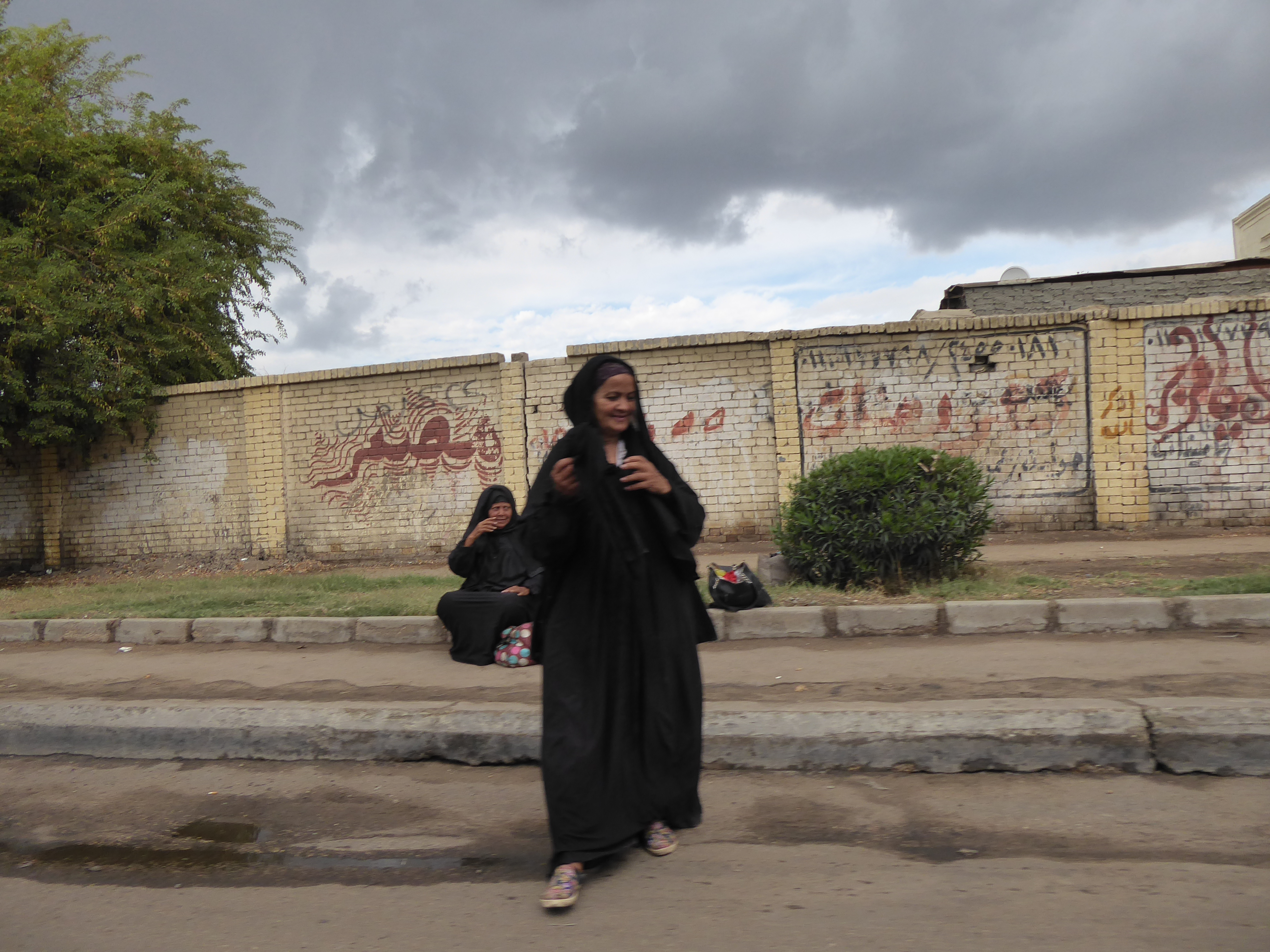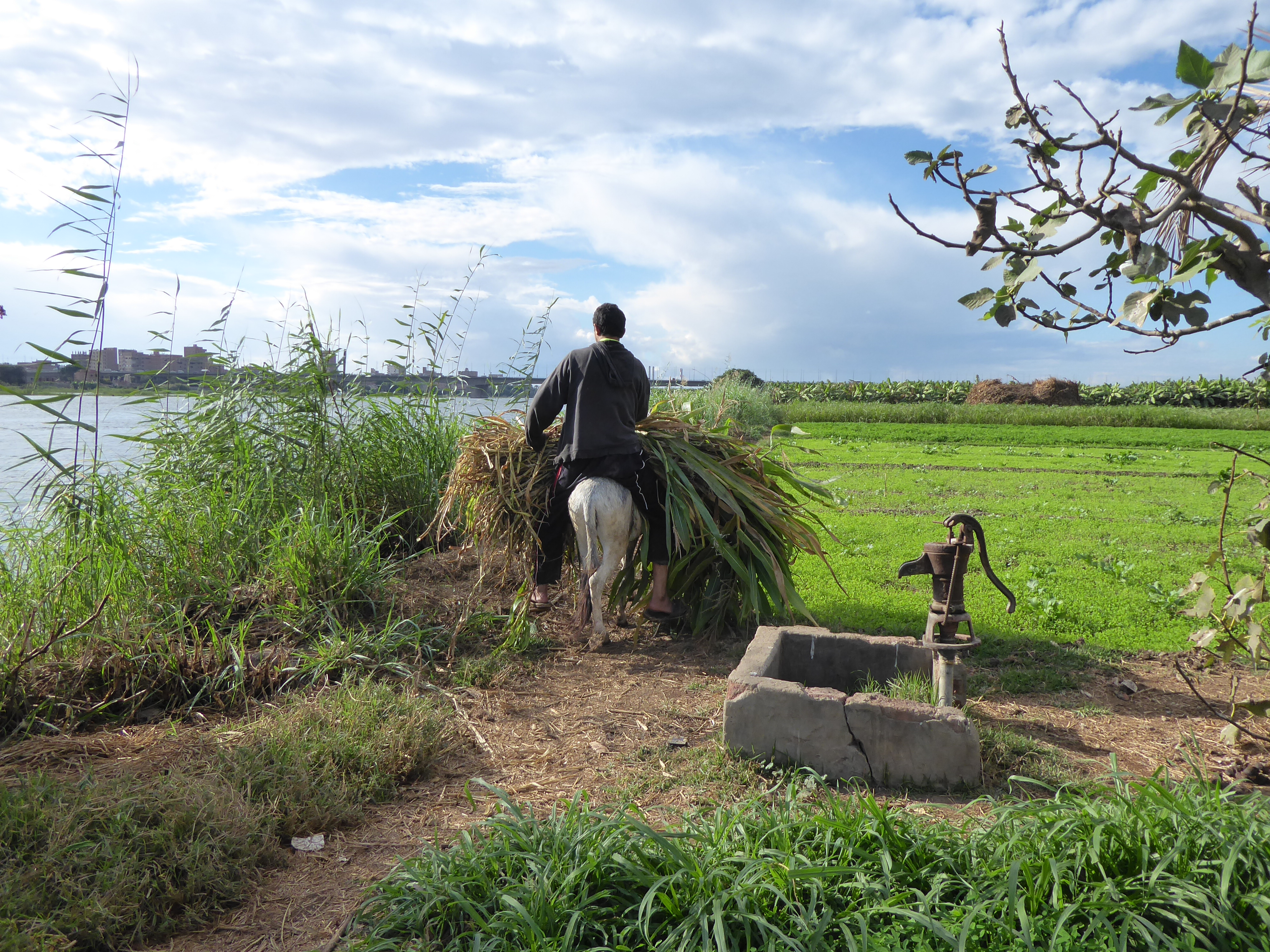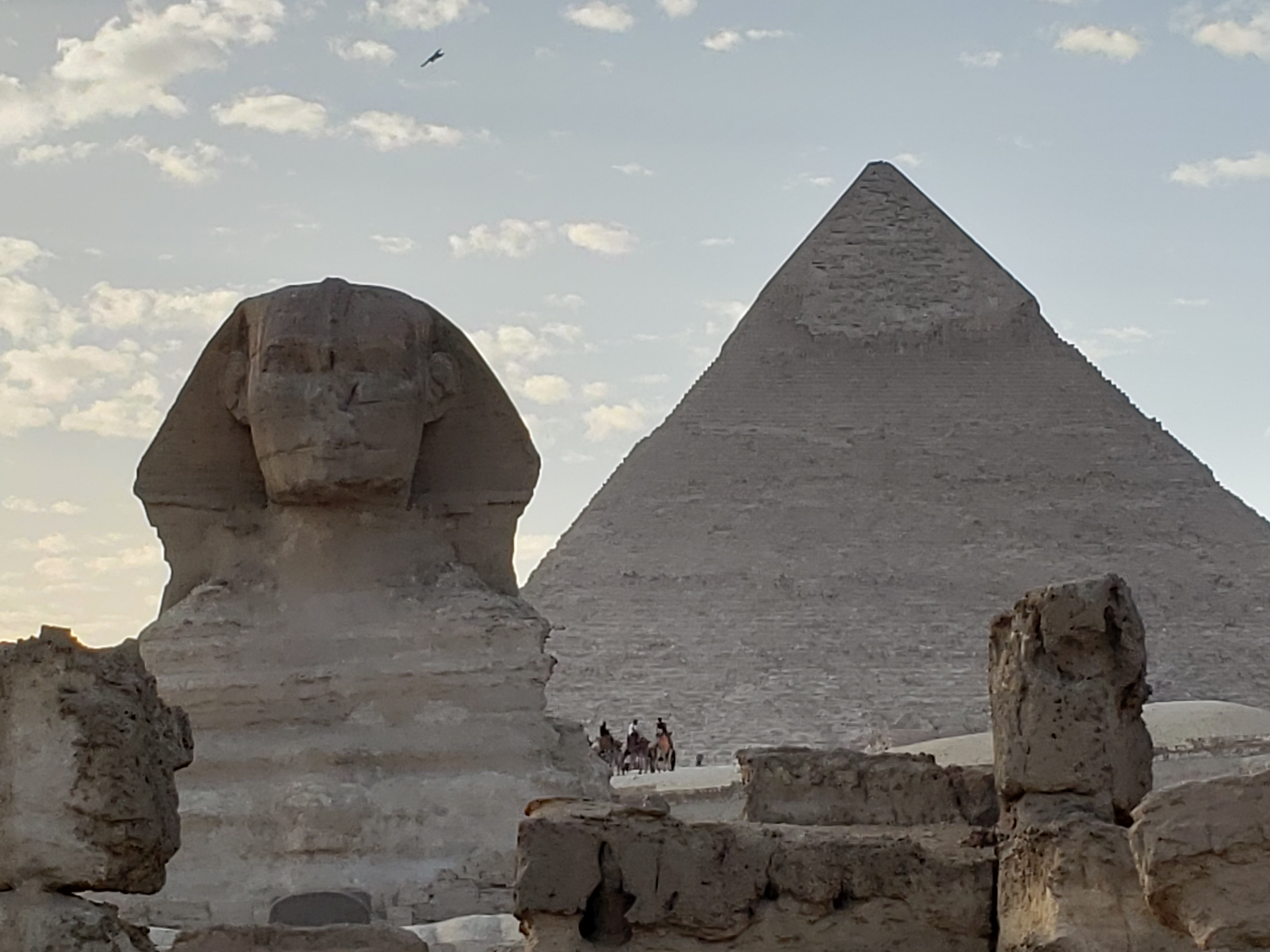
19 November to 24 November
I wasn’t thrilled about my 2 am arrival time at the Cairo airport, but my Airbnb host, Sara, assured me an Uber to her apartment would be fine. However, in the wee hours, traveling for the first time in Egypt, to an area and apartment I did not know, I prefered a secure arrangement.
I’d canceled my original plans to go to Egypt, just after the overthrow of President Mubarak in 2011. I’d regretted it ever since. But even as the stability of the country improved, images of aggressive touts and persistent hassling remained in my mind. Other countries for my travels consistently got top priority.
And then I decided to go, rather spontaneously, from Crete. It was so close, and a friend of friend had just gone and raved about it. I actually knew very little about the country and spent a few days reading various websites and formulating a general itinerary. I would start in Cairo, spend a few nights in the White Desert, then go to Luxor, Aswan, Abu Simbel, and elsewhere given the time. Tourists are limited to a thirty-day Visa–I am not sure why. I would think lengthier trips would be encouraged.
Despite my usual solo traveling, I decided to seek the assistance of a guide/driver, at least in the beginning.
Through TripAdvisor I found a Cairo guide/Egyptologist with outstanding reviews. We spent several days making plans, which included a pick up from the airport, visiting major sites in Cairo and the Giza pyramids–although he would not drive into Manshiyat Nasar or “Garbage City.” (My interest of this impoverished community had been piqued by a documentary I’d seen years ago. The residents known as the “Zabbaleen (garbage people),” make their livings by collecting and transporting Cairo’s refuse back to their neighborhood by donkey carts and trucks, then sorting, and recycling 80 percent of it. The men, women, and children are extraordinarily efficient and nothing goes to waste. Attempts by the government to modernise the system with foreign recycling companies resulted in decreased efficiency and increased costs.)
My plans for Cairo were set. Then, two nights before my departure, my guide called to say he’d been asked to work on an archeological dig in Luxor. I was back to no airport pick-up.
I downloaded the Lonely Planet guidebook and read about a woman taxi driver, Nour–one of the very few working in this overwhelmingly male profession. I contacted her and was happy to learn she was free. We arranged for her to pick me up upon arrival.
The flight was slightly delayed and by the time I left the airport it was around 3am. I’d been up since 7am. As I left the airport building I saw a short, stout woman standing amidst a throng of men holding a sheet of paper. I approached the woman and saw my name written in pencil. Nour greeted me with a hug and said “Welcome to Egypt.” We set out for my home in Maadi, an upscale community in Cairo. Her English was better than I’d thought it would be, but at that hour I wasn’t up for much conversation.I would soon learn, the early arrival was a blessing. The streets were quiet and relatively empty.
Nour asked me several times to assist her in navigating, which surprised me. I realised later I’d failed to give her the exact address and she didn’t ask for it. Cairo is immense. We drove on and on while I used Google Map with bleary eyes to indicate the direction.
In the early hours men wearing western attire and traditional galabiya (the long robes) and women, virtually all wearing galabiyas and headscarves, stood or walked, barely visible, on the side of the dark highway in small groups or alone. I assumed they were waiting for transportation and my question for clarification was not understood. “Don’t people stand on roads in your country?” Nour asked.
The concept of road regulations in Cairo seems vague at best: drivers will not hesitate to drive their cars into oncoming traffic if it proves convenient, and consistently ignore the designated lanes.(Horns are tooted incessantly to insure that one’s location is noted.) Despite the outsider’s impression of chaos and cacophony, the system of cars, motorcycles, scooters, tuktuks, trucks, donkey carts, buses, minivans, horses, pedestrians, and pushcarts in this city of 20 million succeeds in getting goods and people from place to place.
Nour and I finally arrived in the general vicinity of the apartment, but couldn’t locate the building. We drove on wide tree-lined streets bordered with villas and high walls. I knew the neighborhood was upscale, but hadn’t expected to stay in such luxury for my five night stay. Sara, the host, had asked that I call her when I arrived outside her building. It was now 4am and she did not answer. Nour assured me she would not leave until I was safely inside my home. An Uber driver may not have been as understanding or accommodating.
Small booths with guards dotted the roads. Nour asked a man in uniform for assistance in finding the building. He asked her who she was. When she told him he asked, “You are a taxi driver? You are a woman.” and walked away. Nour translated the encounter for me and added, “I was the one with the question, not him.” I had the impression that men doubting her profession were not out of the ordinary. She joked that we could sleep in the car if need be. I tried to reach the host again. There was still no answer.
We waited some more, tried again, and finally got a response. Nour and Sara spoke at length. Finally I was standing on the doorstop of a nondescript cement structure of several stories with a broken stoop. But I was happy to be there. After paying Nour and compensating her for her time and effort we made plans to meet again and visit some places together.
Sara the host, a young, dark-haired woman, looked as if she’d been sleeping, which made sense given the hour, and explained her not answering the phone. Feeling exhausted, my patience was tested when she started then to put her laundry away, pack her things, and clean up the bathroom, as if my arrival had been completely unexpected. Then she asked, “Do you mind if I leave my cat?” My first thought, uttered aloud, was “Will I have to clean her litter box?” Apparently my response did not exhibit the enthusiasm she’d hoped for. “Never mind, I’ll take her with me!” I like cats, but I was relieved. The cat, whose name I’ve forgotten, had already scratched me when I’d gone over to say hello.
The apartment was large, nicely decorated, comfortable, and quiet. Sara left and I happily got into bed. The following day Sara graciously sent me abundant information on places to visit and eat, transportation, and warm wishes for a great stay. Our hiccup was over and the awkward check-in an aberration.
Although the time difference between Greece and Egypt was only one hour, I felt jet-lagged when I awoke around 11am. I was glad I’d made no plans for the day. I took it easy and walked around the neighborhood . It was largely populated with young men and women modestly dressed with head scarves. I did not don a head scarf, but opted for lightweight and loose-fitting long-sleeved shirt and pants. I received no unwanted attention. Later, I saw a young European couple. She was wearing a sleeveless, mini-dress. The locals paid her no mind either. They were apparently accustomed to and tolerant of foreigners with different codes of attire.
The temperature was surprisingly pleasant, but the dust and pollution was oppressive. In search of a restaurant Sara had recommended, I approached an older couple walking by for directions. We started a conversation. He’d been working in the US Embassy the past three years and I asked about life in Cairo. They said, rather diplomatically, that there was both the good and the bad, but were concerned with potential health problems, particularly respiratory. I wasn’t surprised. The wife however was delighted to collect jewelry and mentioned several places for me to shop. I asked about getting around by the metro and they said they were forbidden to use it as a security measure. Their travel around Egypt was also highly restricted.
I’d made plans the following day to meet a woman guide, Manal, also listed in the Lonely Planet, to tour the Egyptian Museum. Normally I prefer visiting museums on my own, but I was pleased to have the opportunity to meet Egyptian women. I recalled my experiences in Morocco where my encounters with women were very few, outside of the hammams, because of limited access and the language barrier.
I took the metro to the center of Cairo, about an hour away. Any assistance I needed with directions was graciously addressed. It helped I already knew “yes” and “no” in Arabic. I found the people to be reserved, but kind.
The Egyptian Museum is huge and I was glad to be offered its highlights. Manal beautifully gave me insight into the complex, rich past of Egypt, its dynasties, and the glorious tombs and objects that remain. Her explanations however were repeatedly interrupted by girls from the countryside, where foreigners are rare, asking me to pose for a photograph with them. I obliged until Manal gently said we have much to see and discuss.
I spent the following days visiting some of the major sights and walking down anonymous streets. Each day offered new experiences. It was exhilarating and exhausting. Cairo seemed to be a city without end.
Some highlights:
A torrential downpour freshened the air and left a blue sky in its wake.

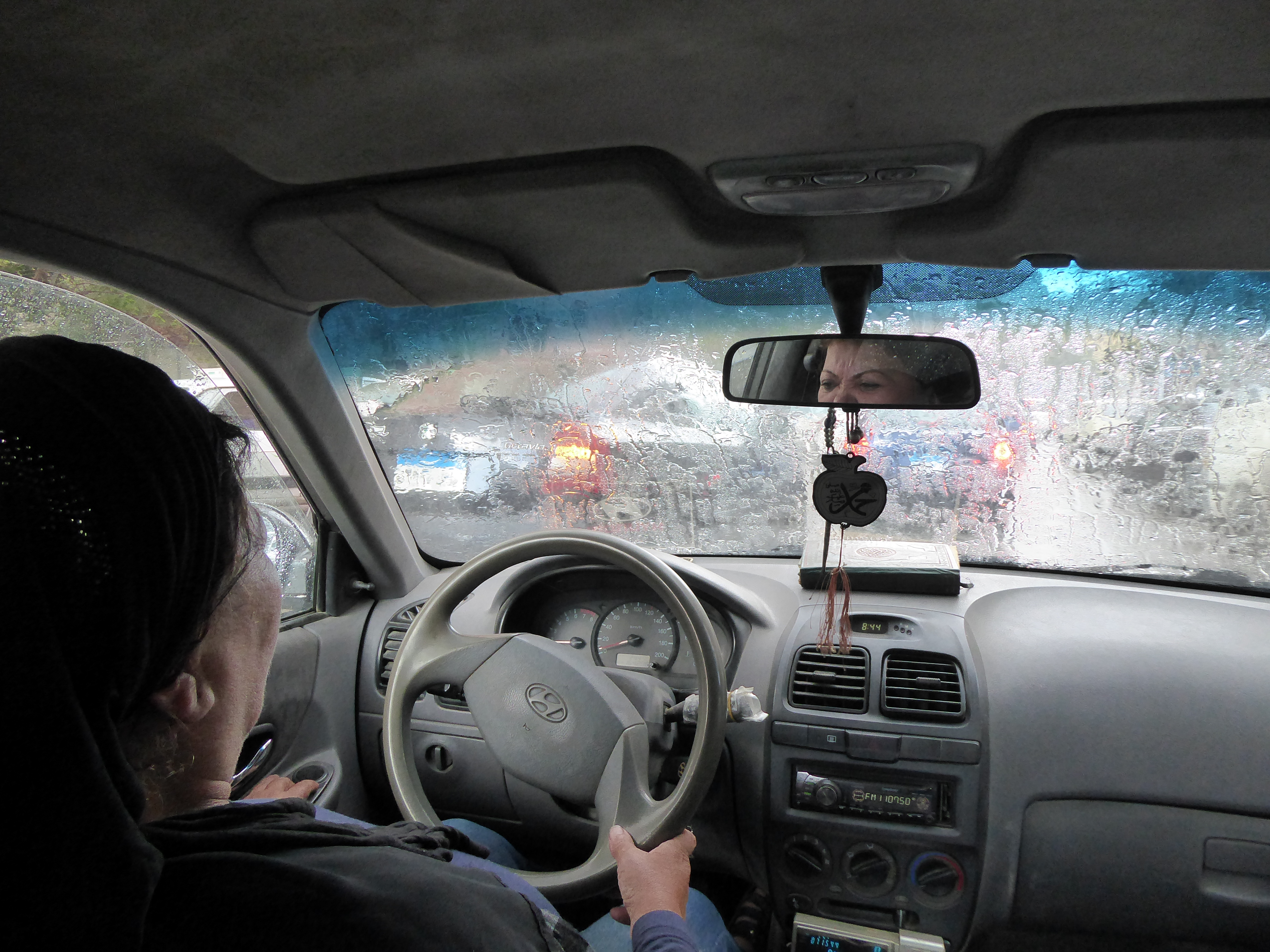
A short boat trip with Nour on the Nile brought me away from the brown, dusty city to verdant fields.
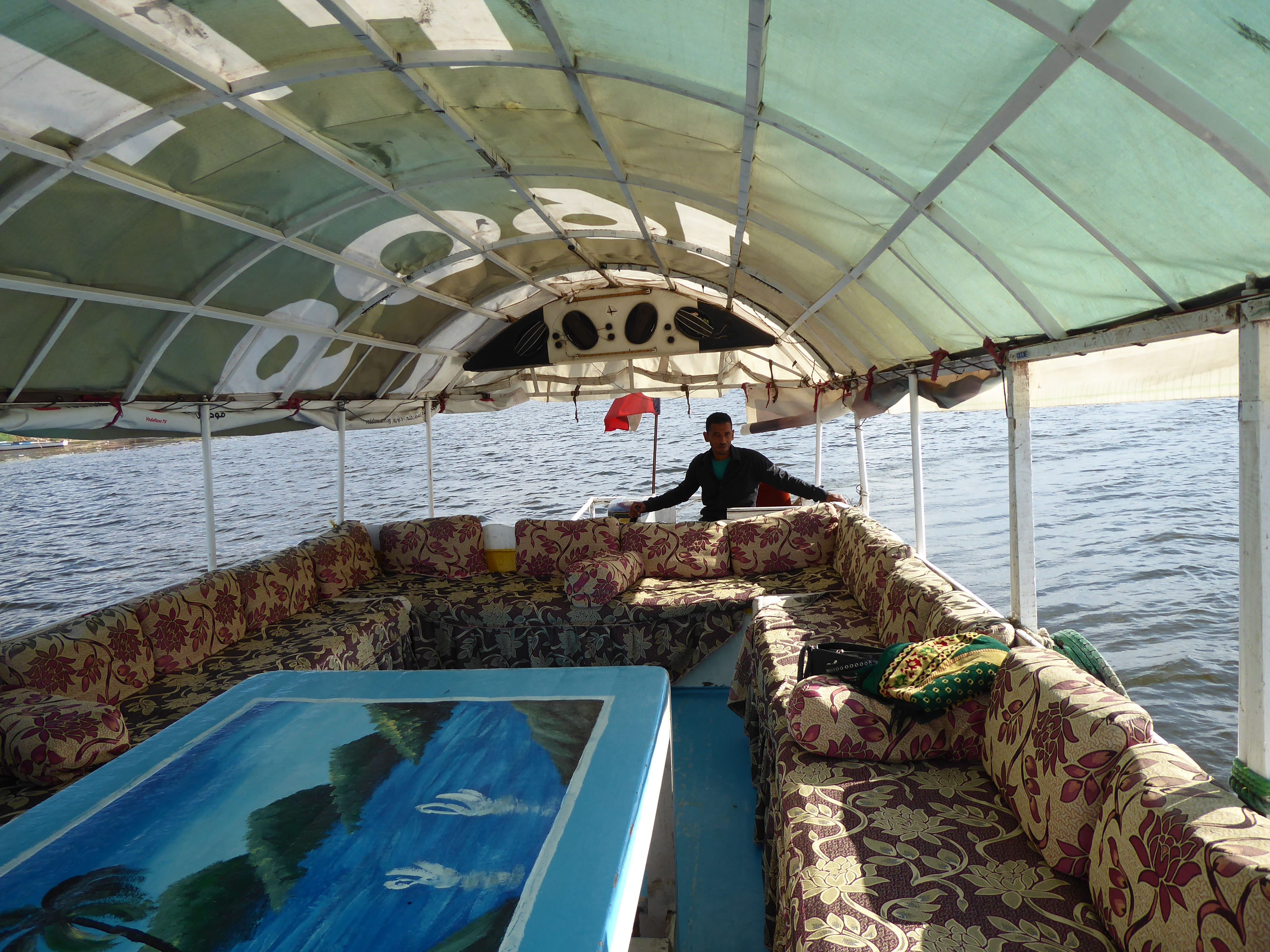
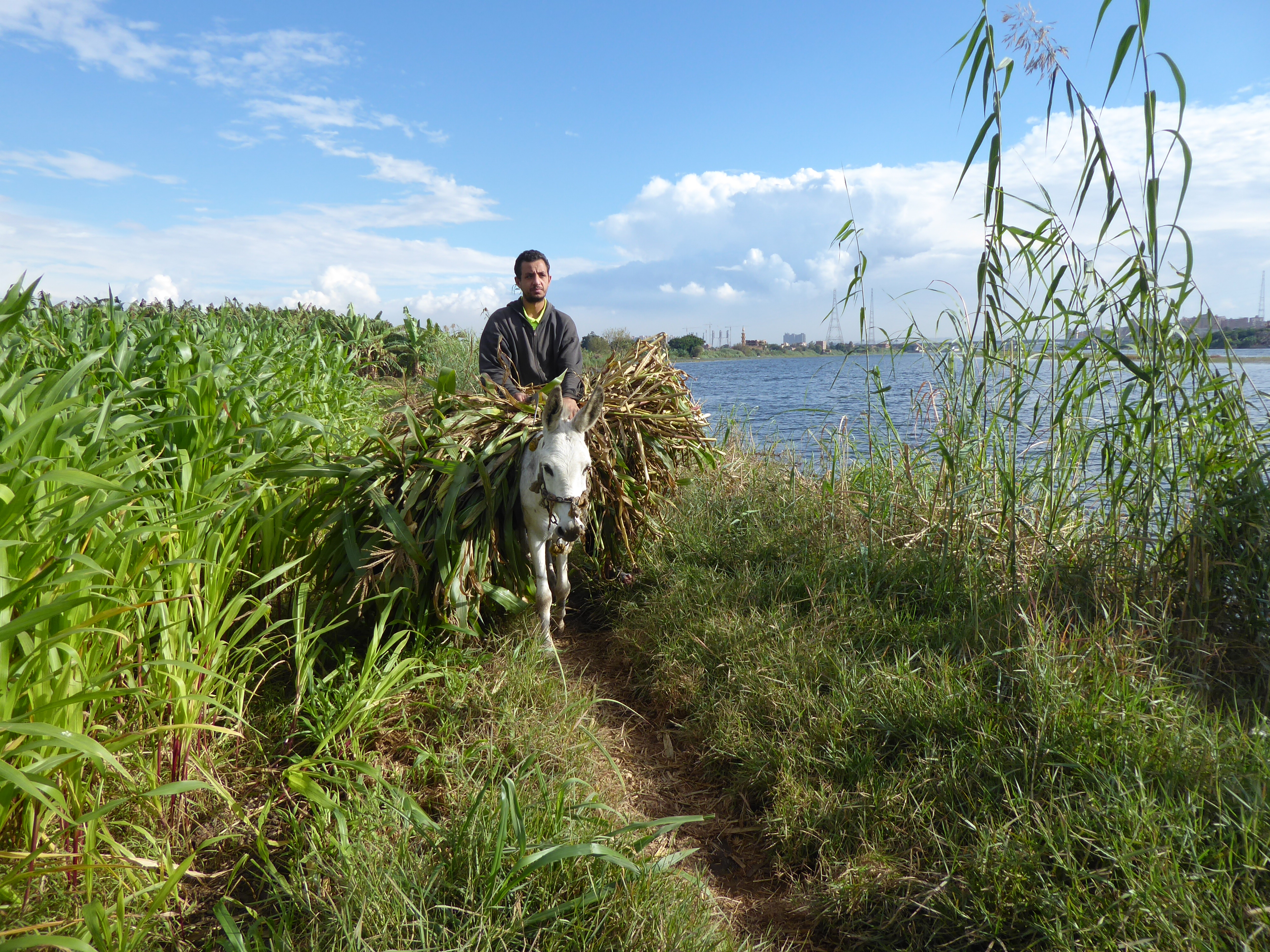
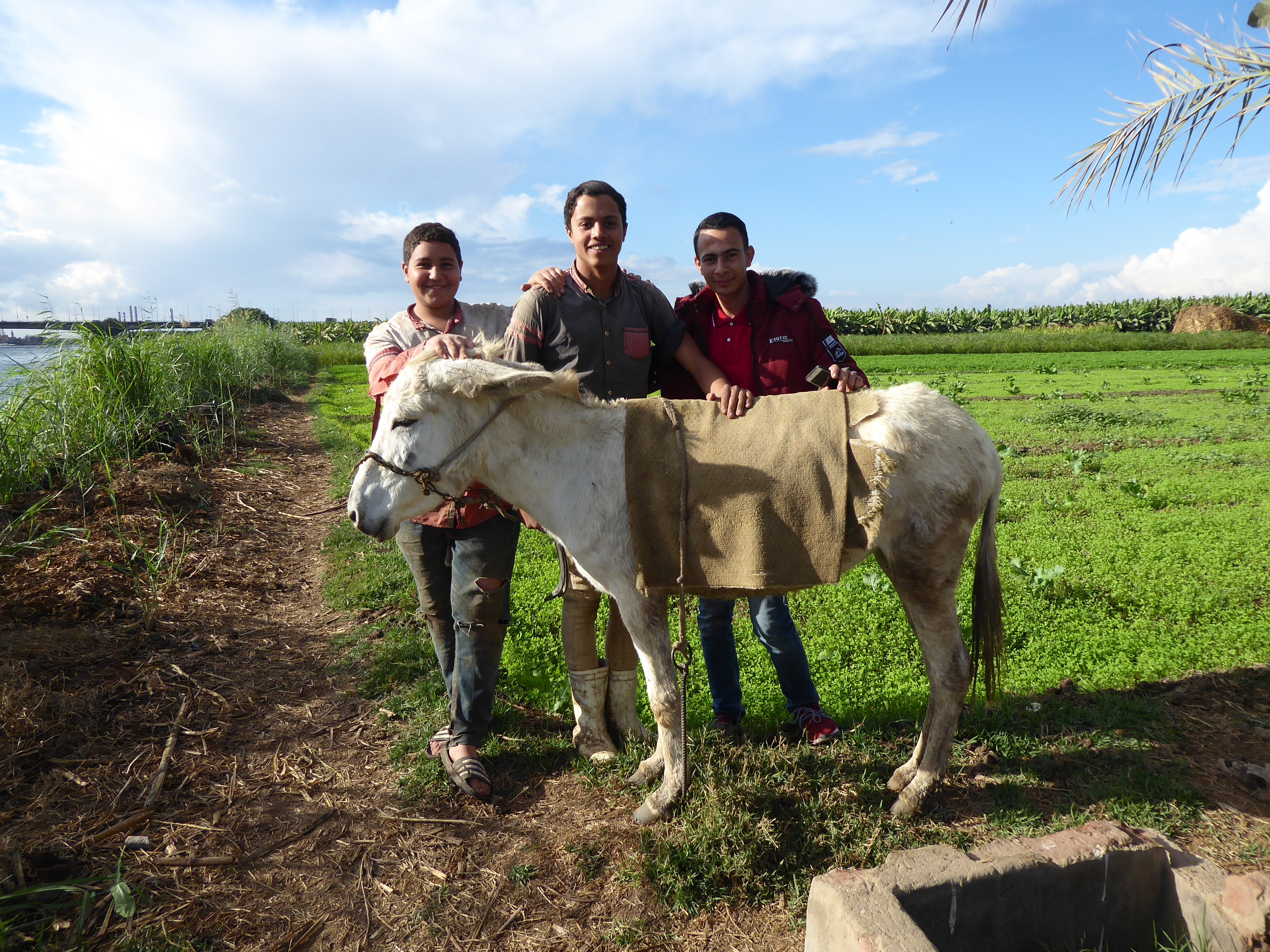

I learned to wear earplugs to lessen the din of traffic. And took each car ride as if I were on a flat roller coaster. It was much more pleasant to think of the drives as thrilling rather than harrowing.
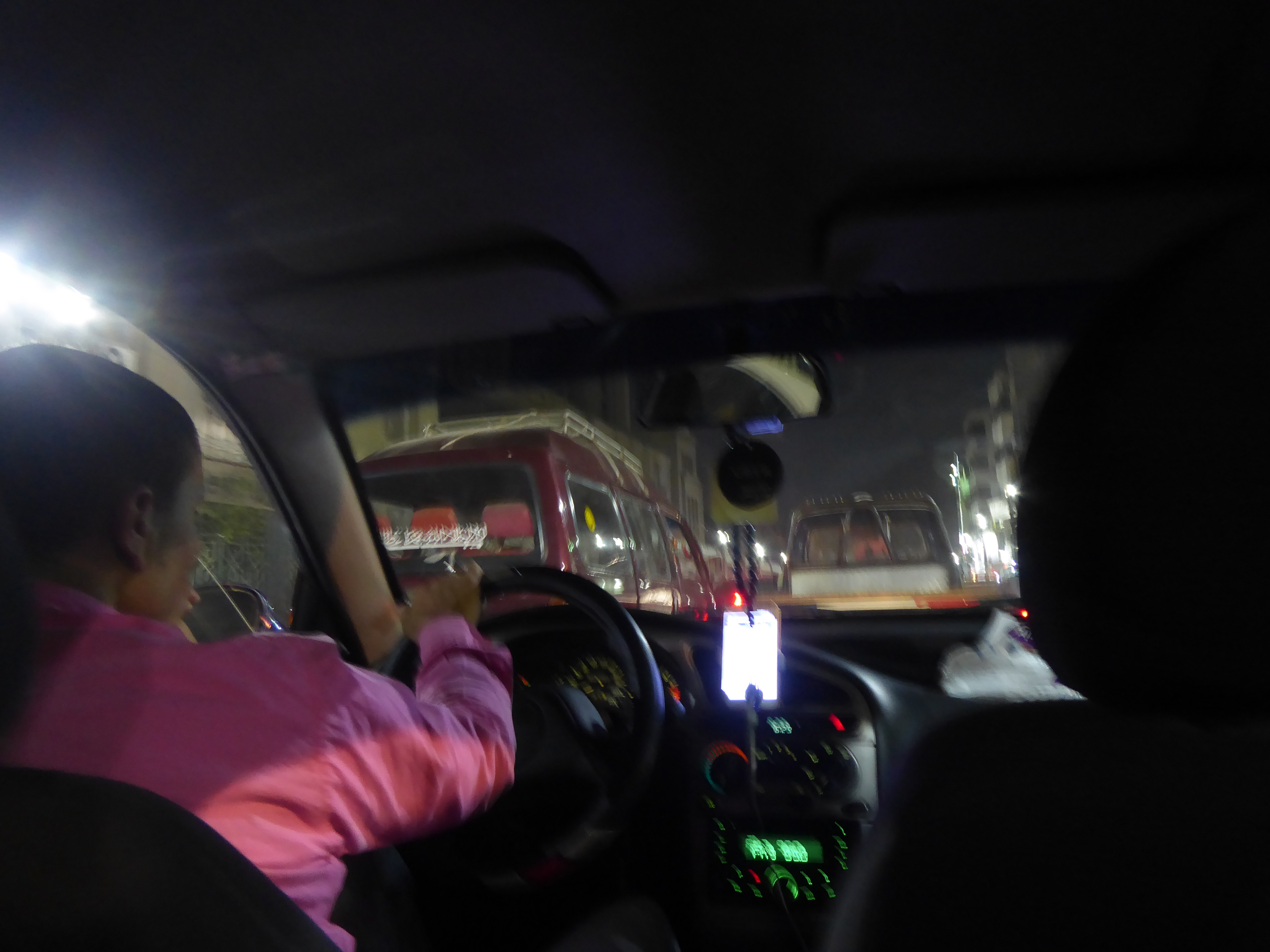
I cherished the encounters with the welcoming locals. My concerns of hassling and aggression were completely unfounded.
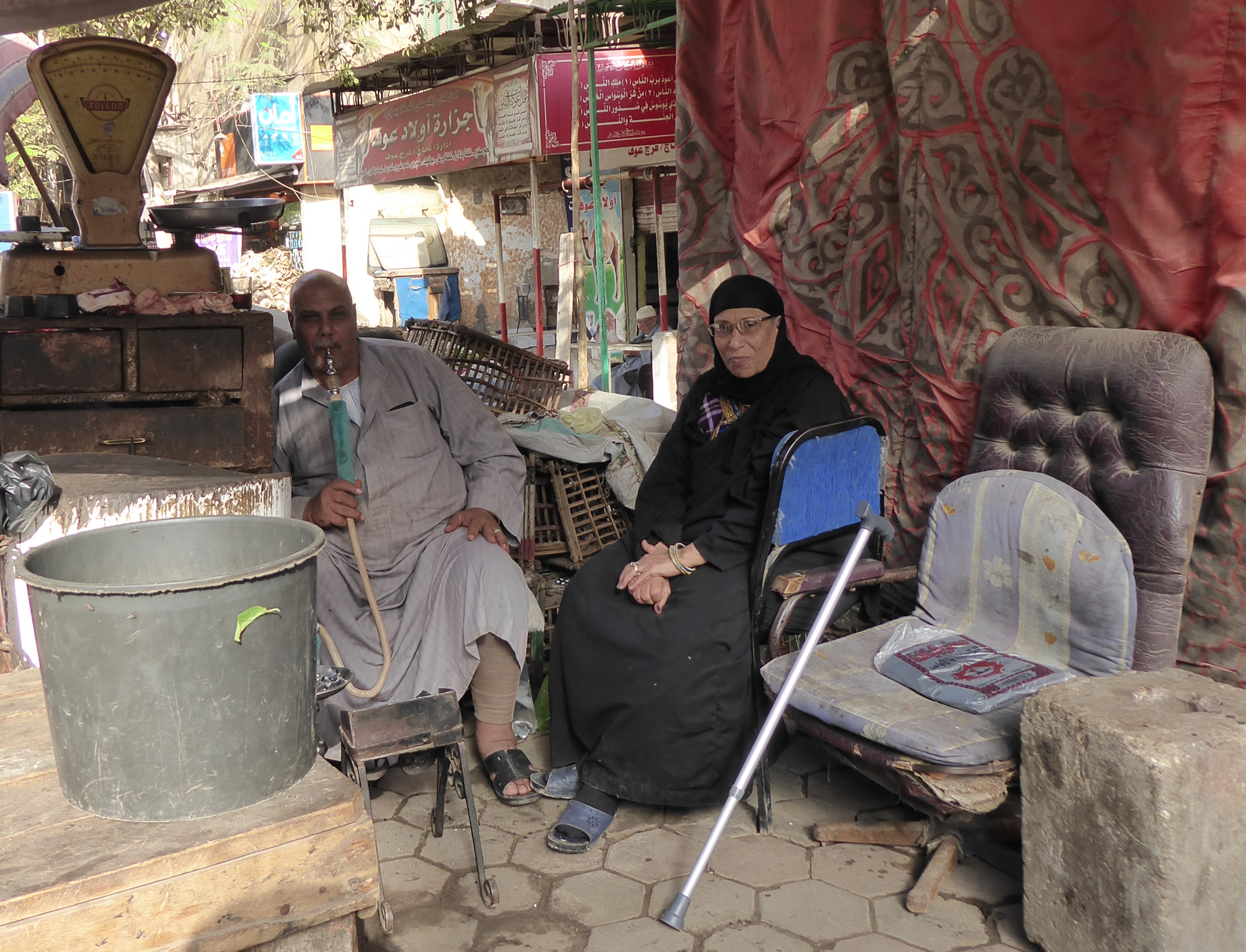
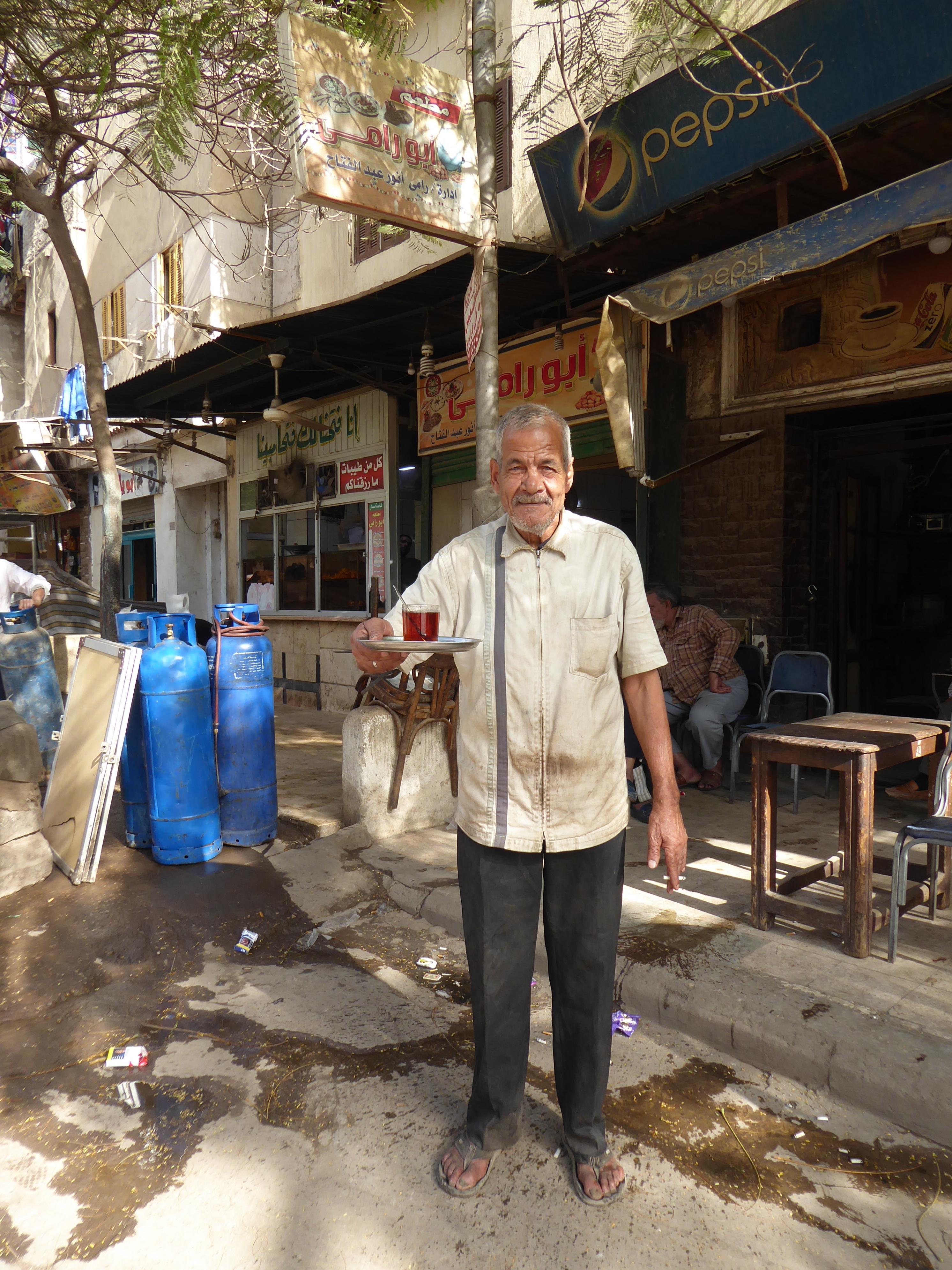
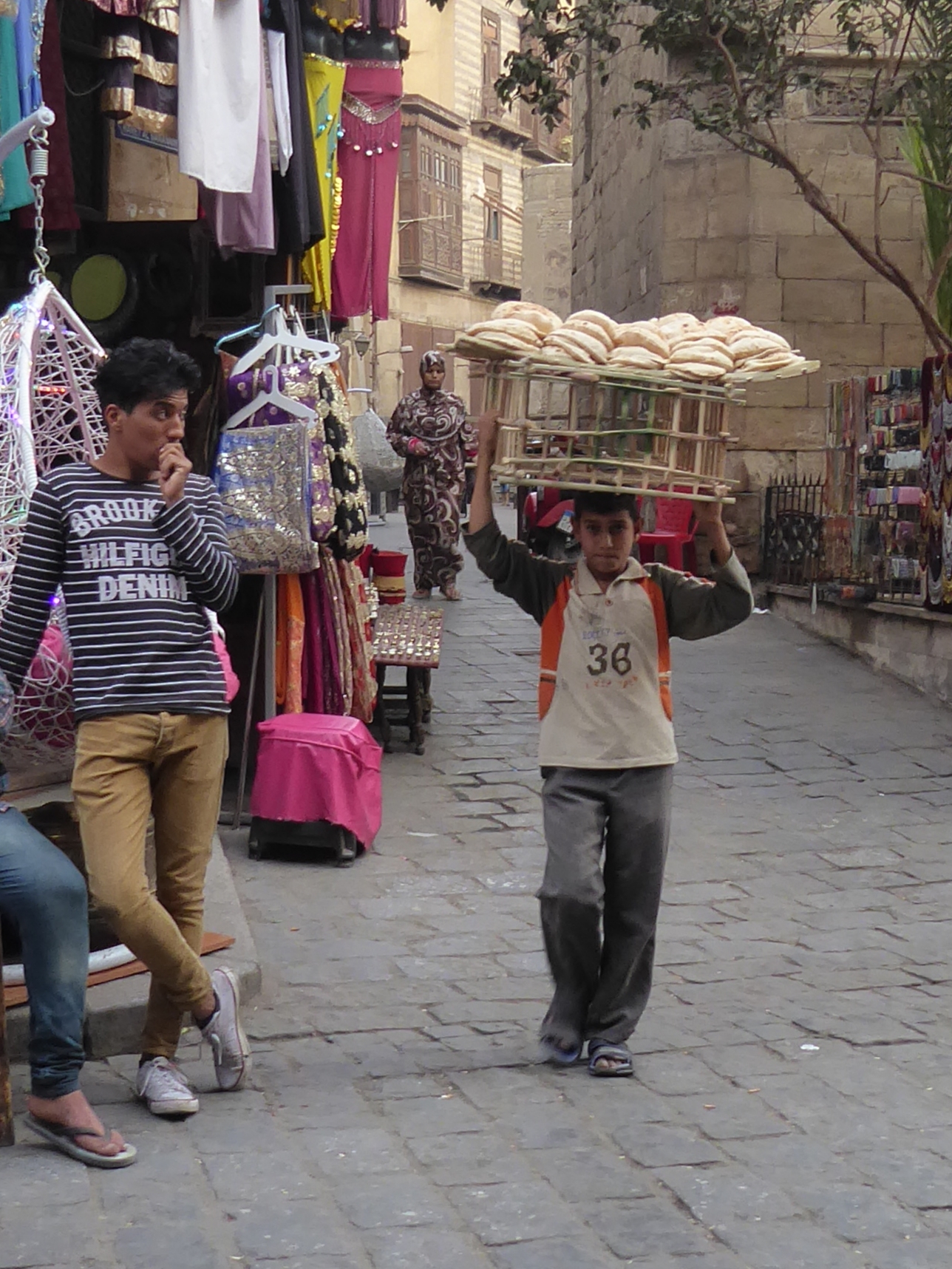
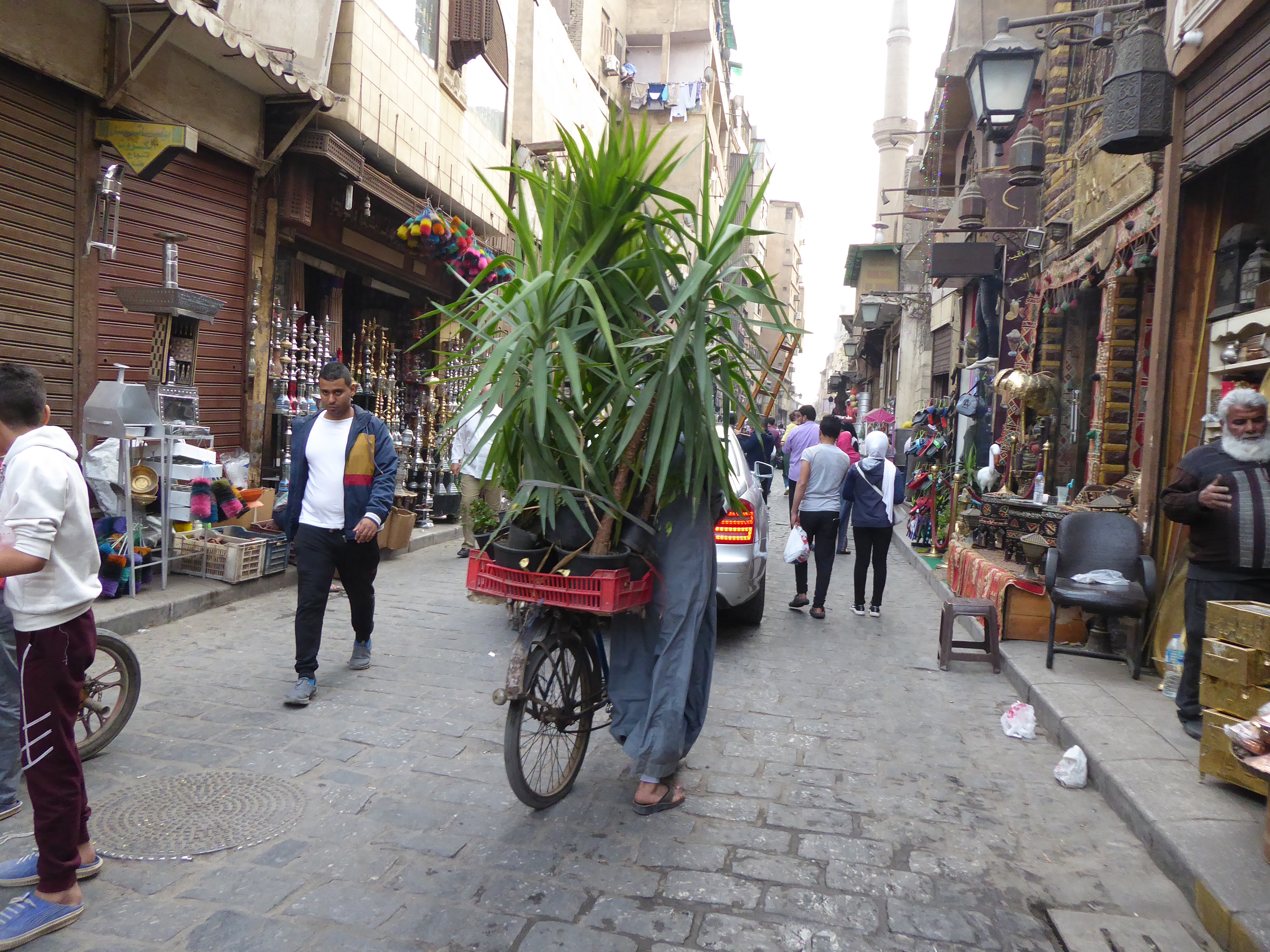
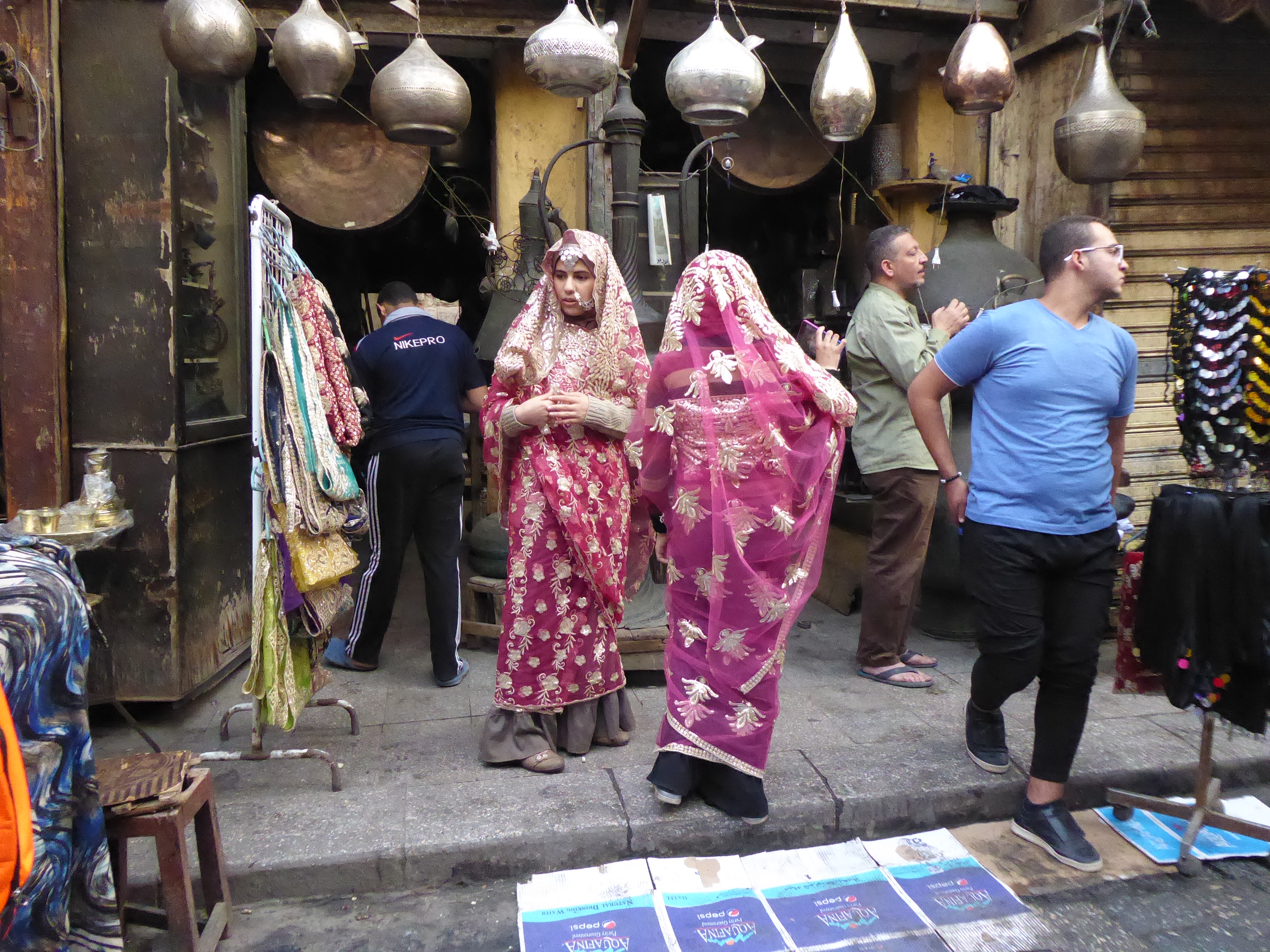
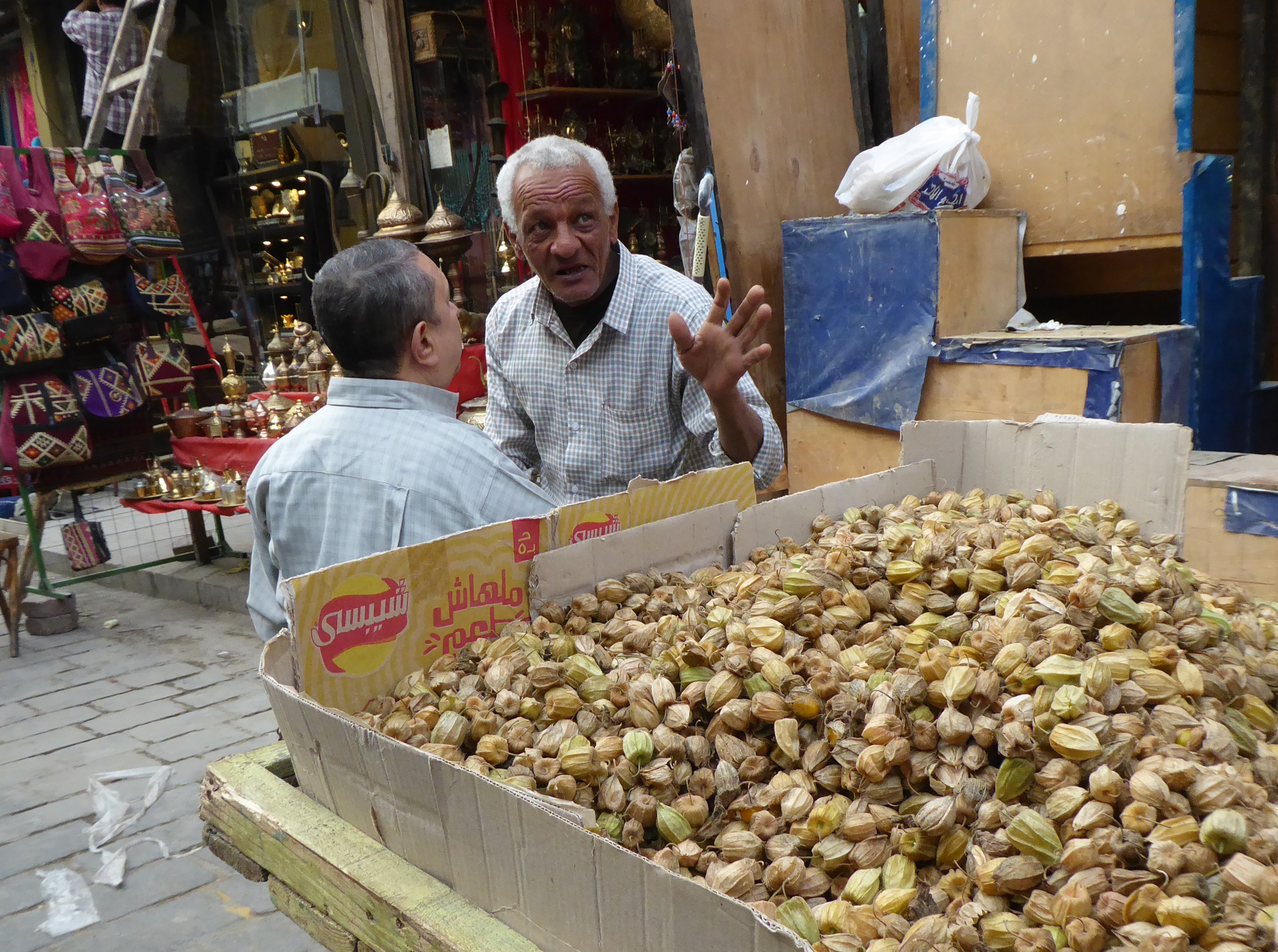
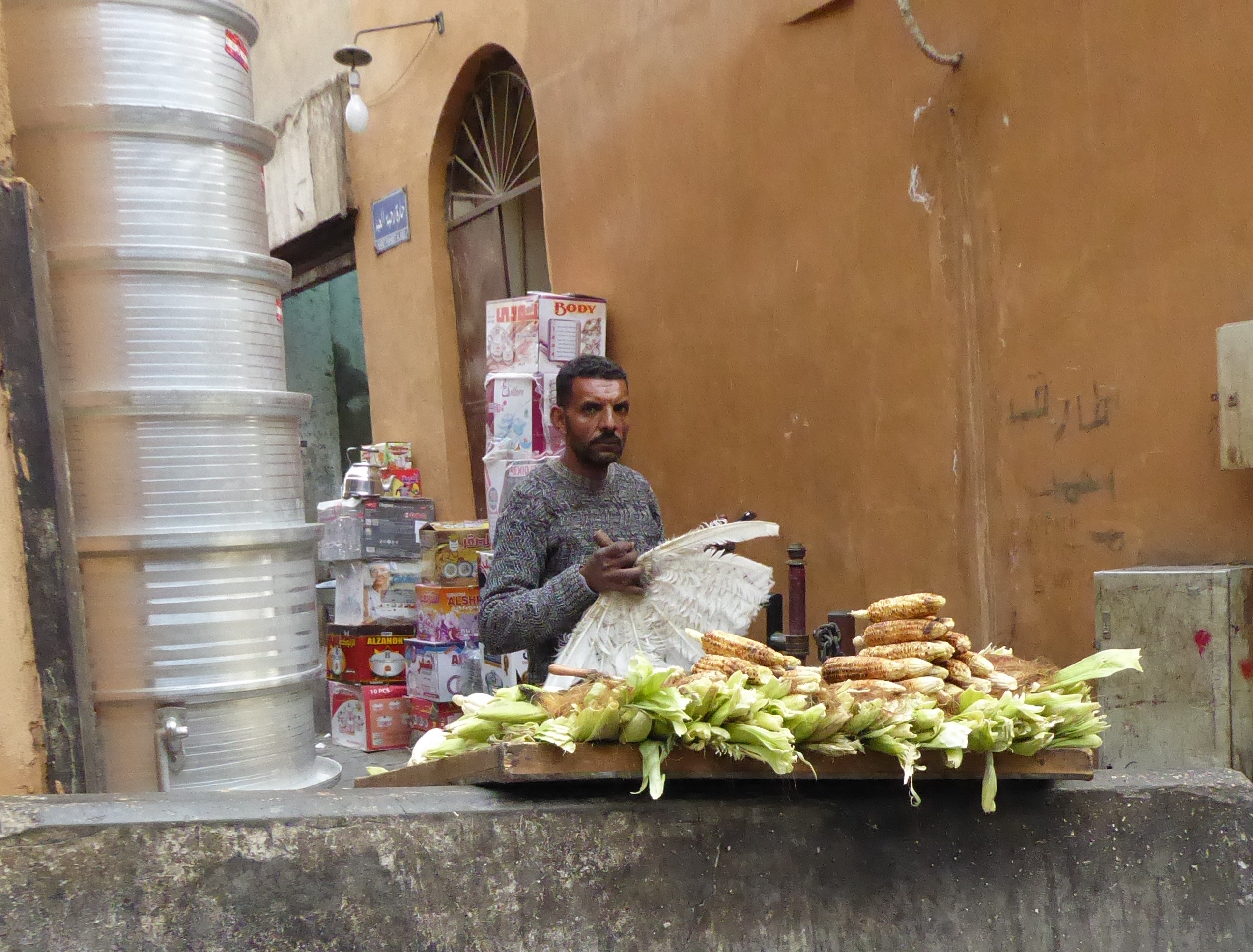
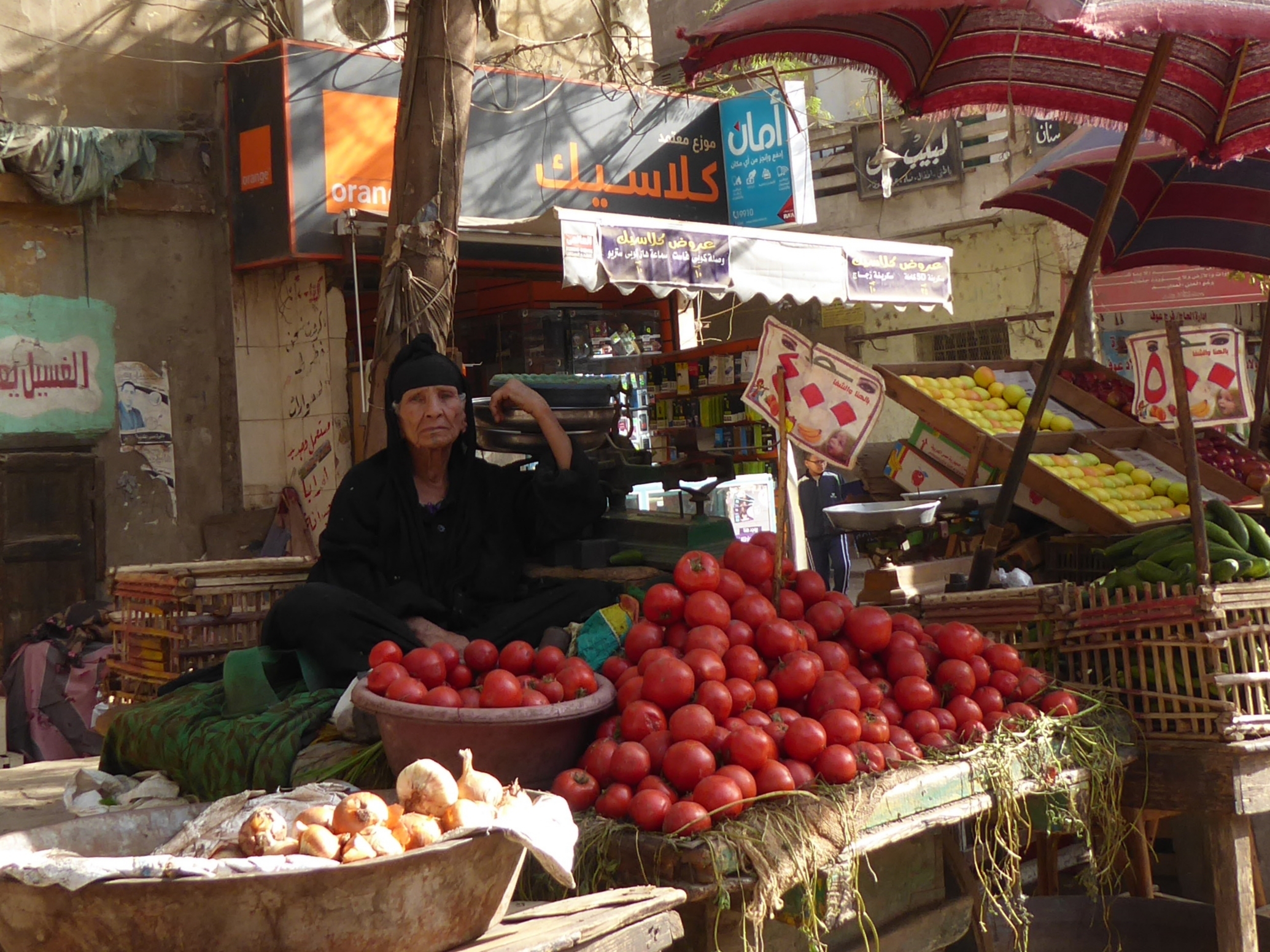

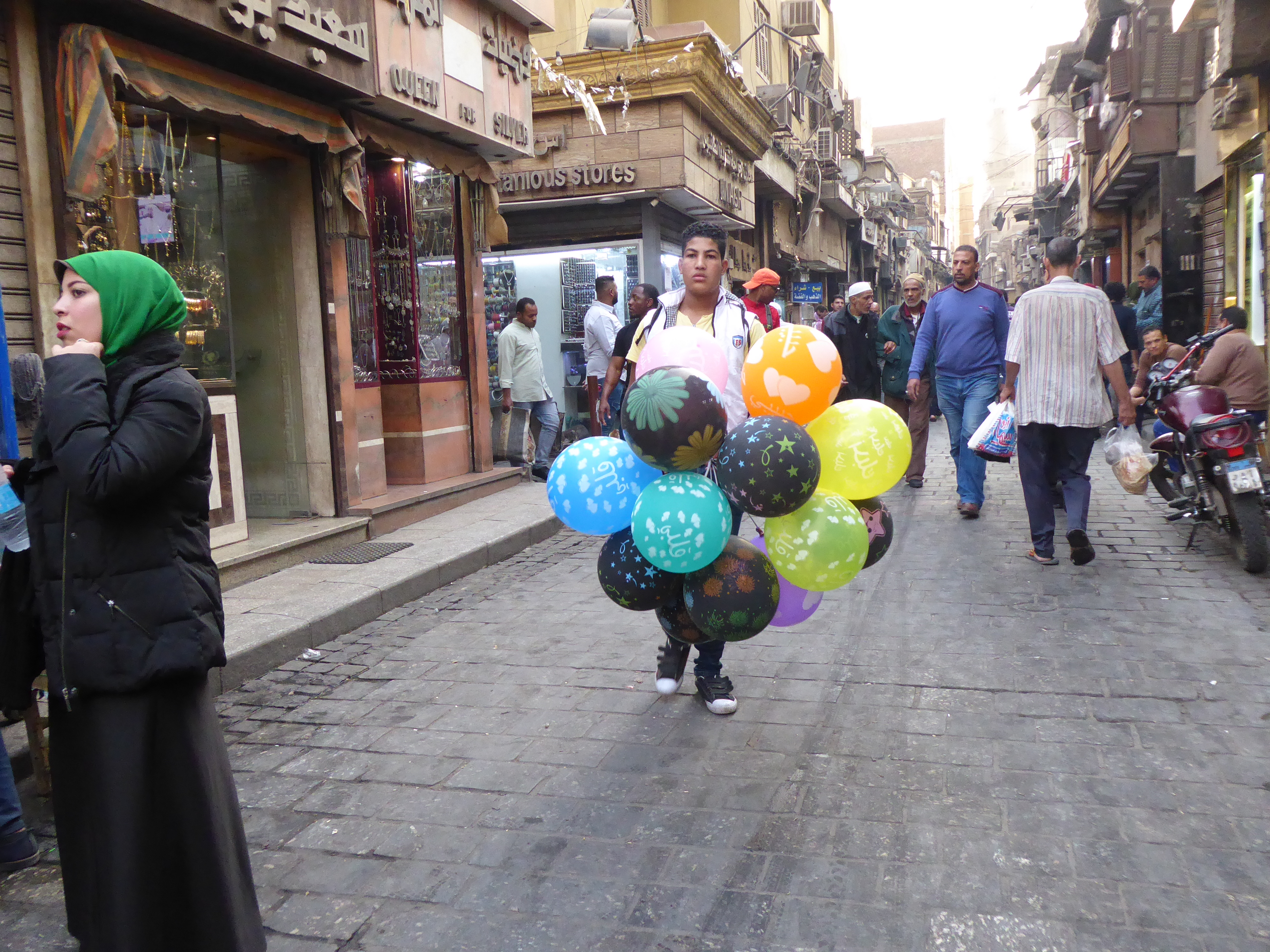
I was crushed by the sight of homeless barefoot children in tattered clothes wandering the streets, and a young woman tucking her babe in arms next to her two other small children for the night on a busy sidewalk.
When Nour and I made our way to “Garbage City” I saw why my initial guide had refused to go. The narrow roads were unpaved, narrow, and difficult to maneuver. The smell of garbage permeated the air. Yet this was the home to a hard-working and vital community. As Nour intrepidly drove up and up through the streets to a large church carved out of stone, the Monastery of Saint Simon, locals helped us make our way through the labyrinth.
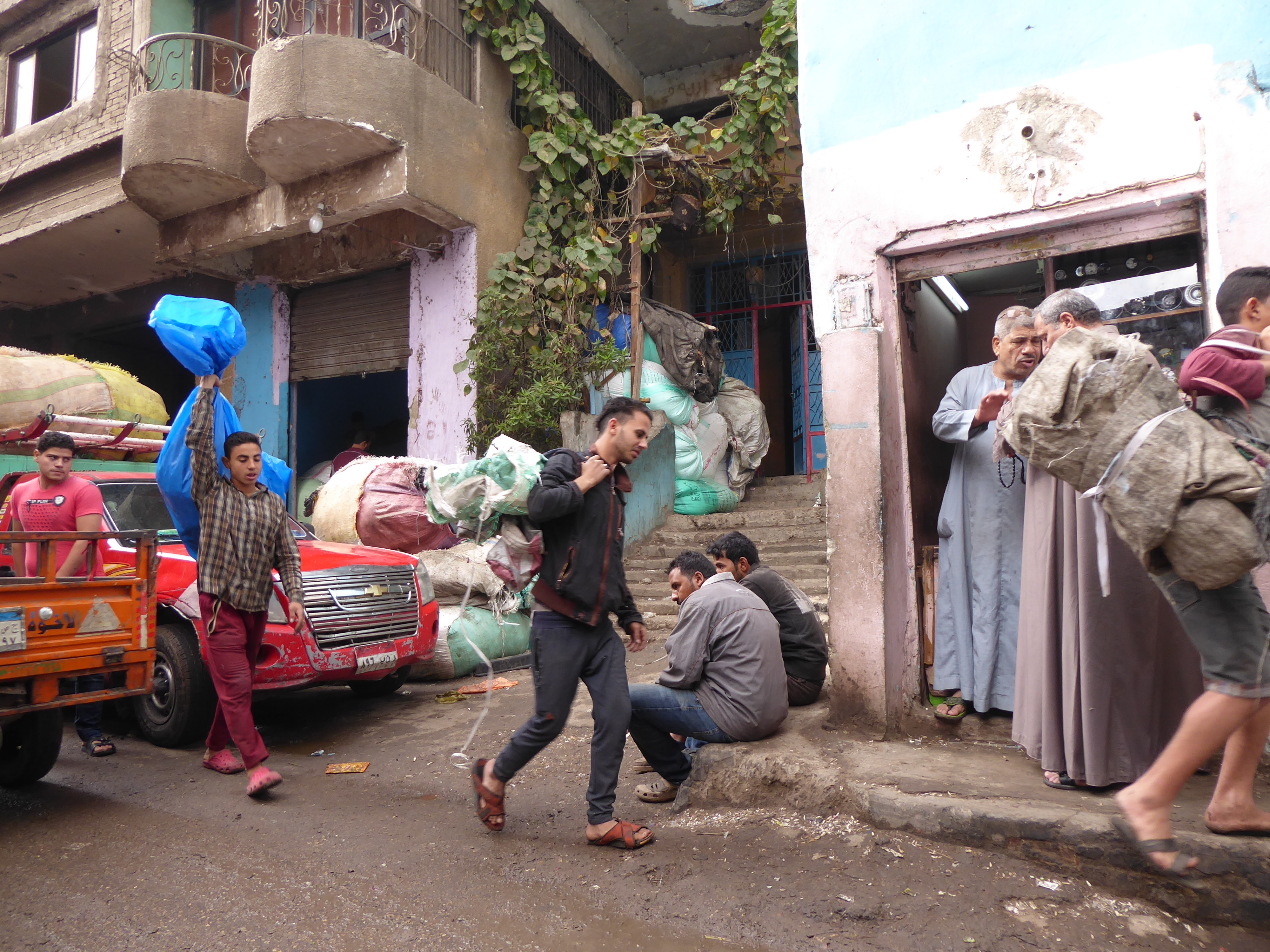
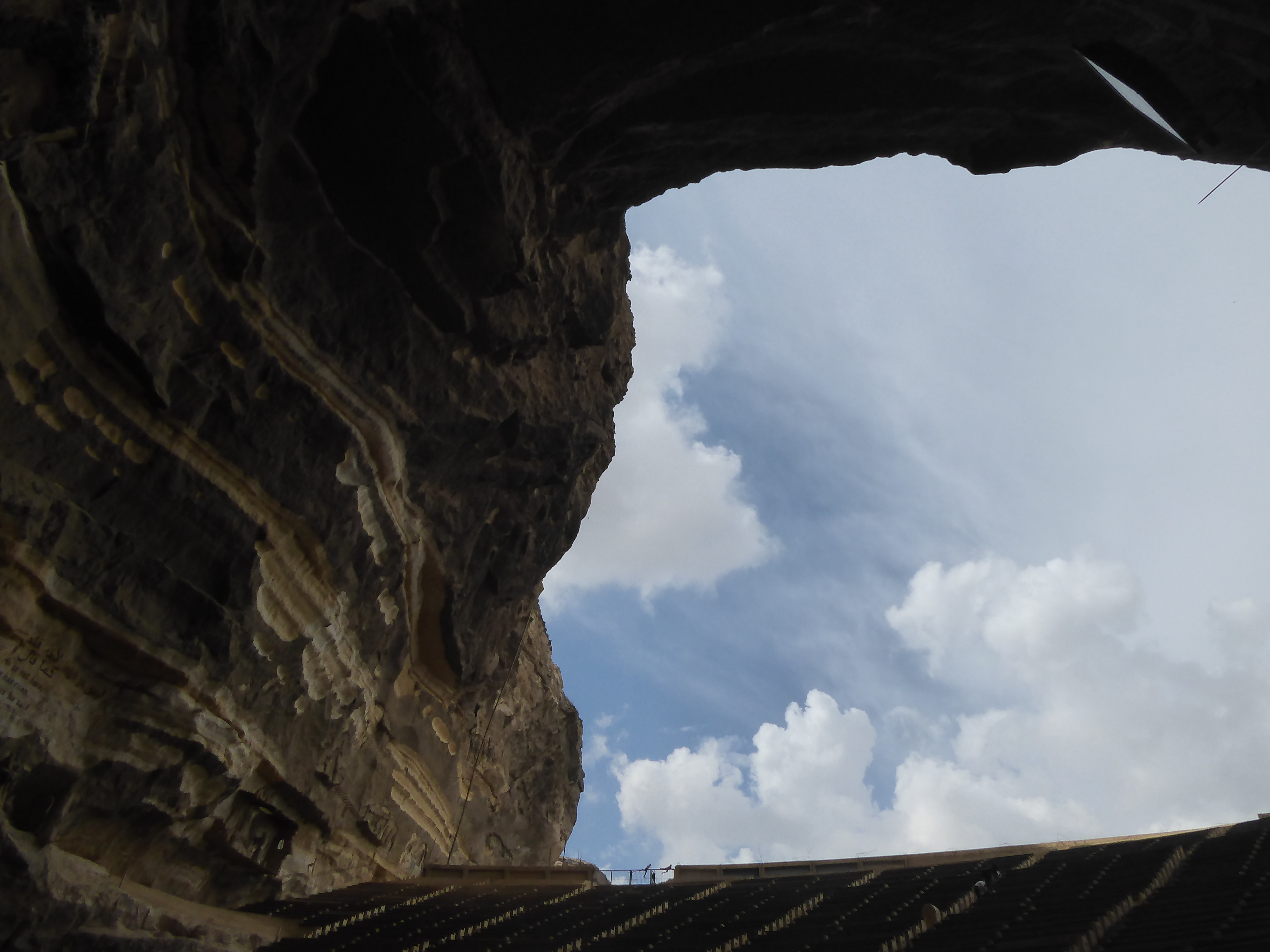
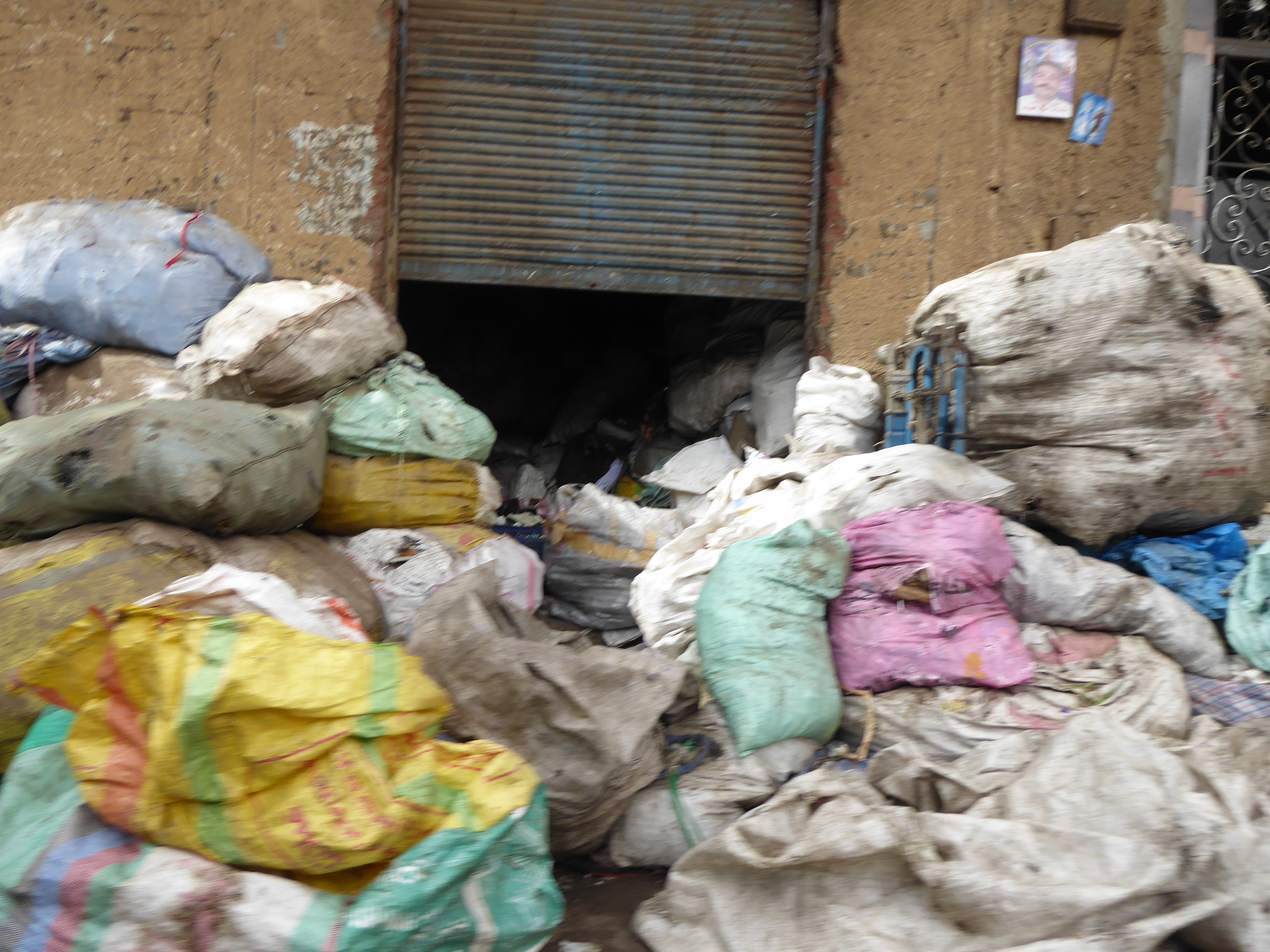
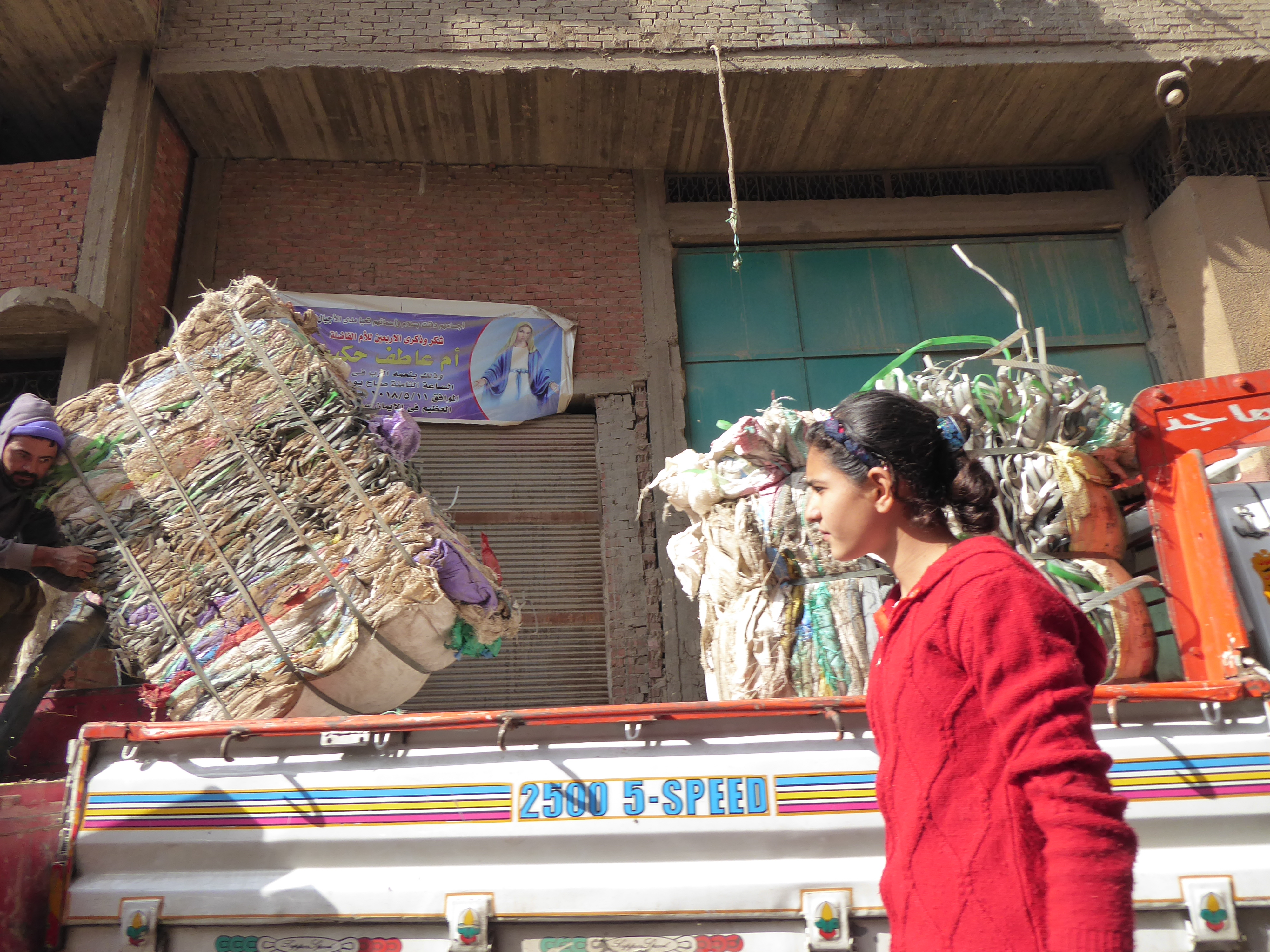
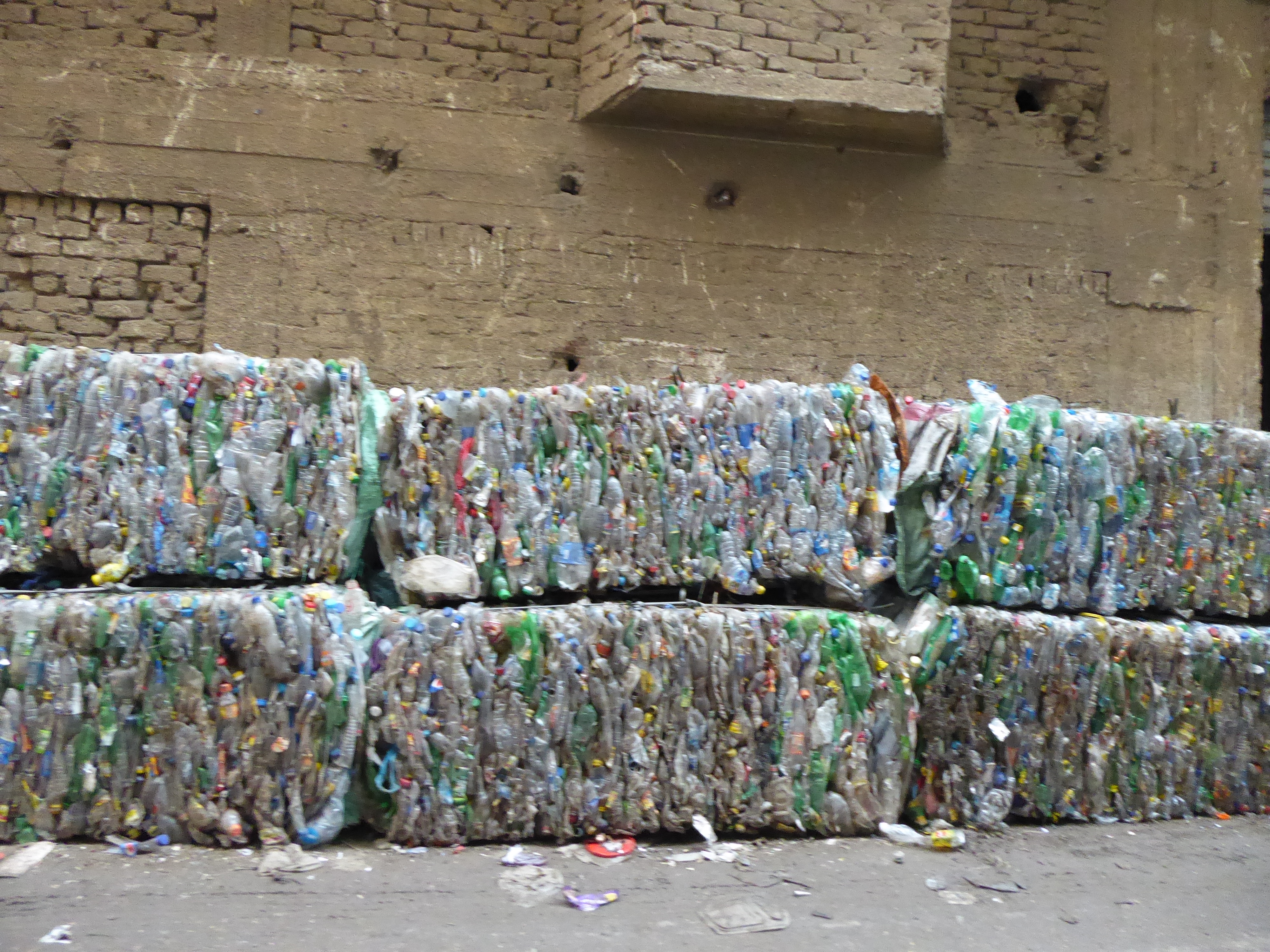
I was awed by Egypt’s past and present, and moved to tears by the sight of the pyramids and sphinx.
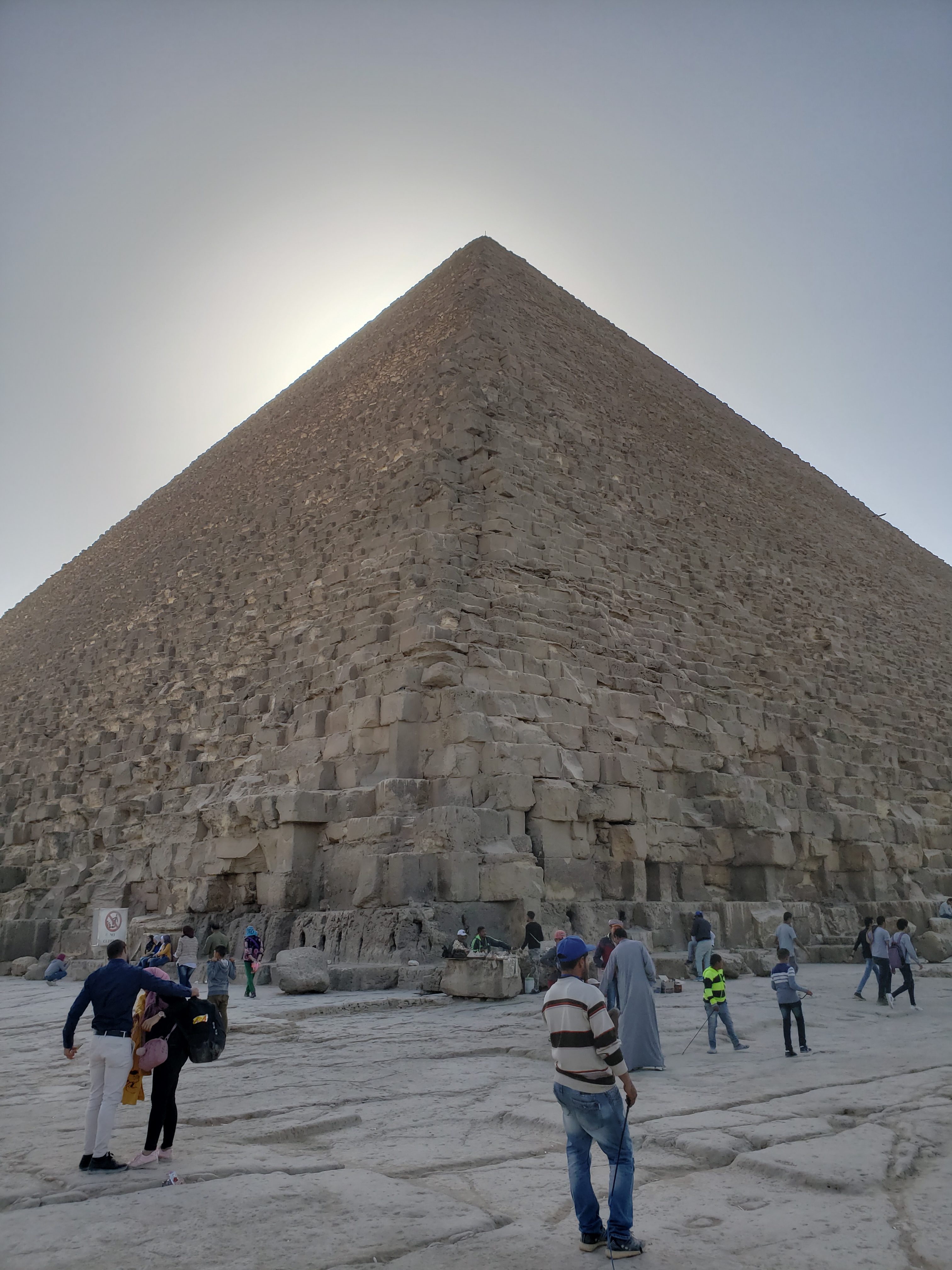
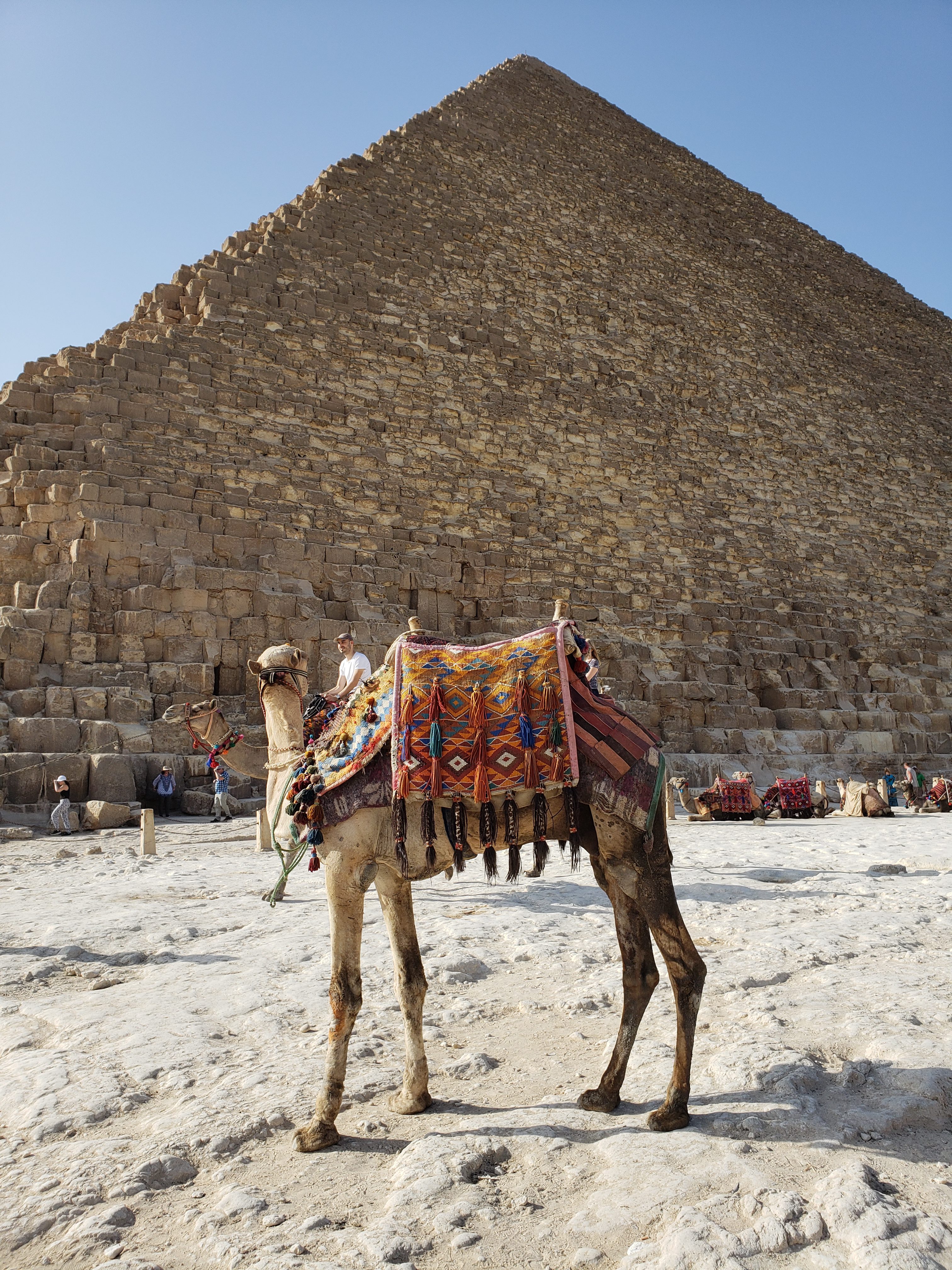

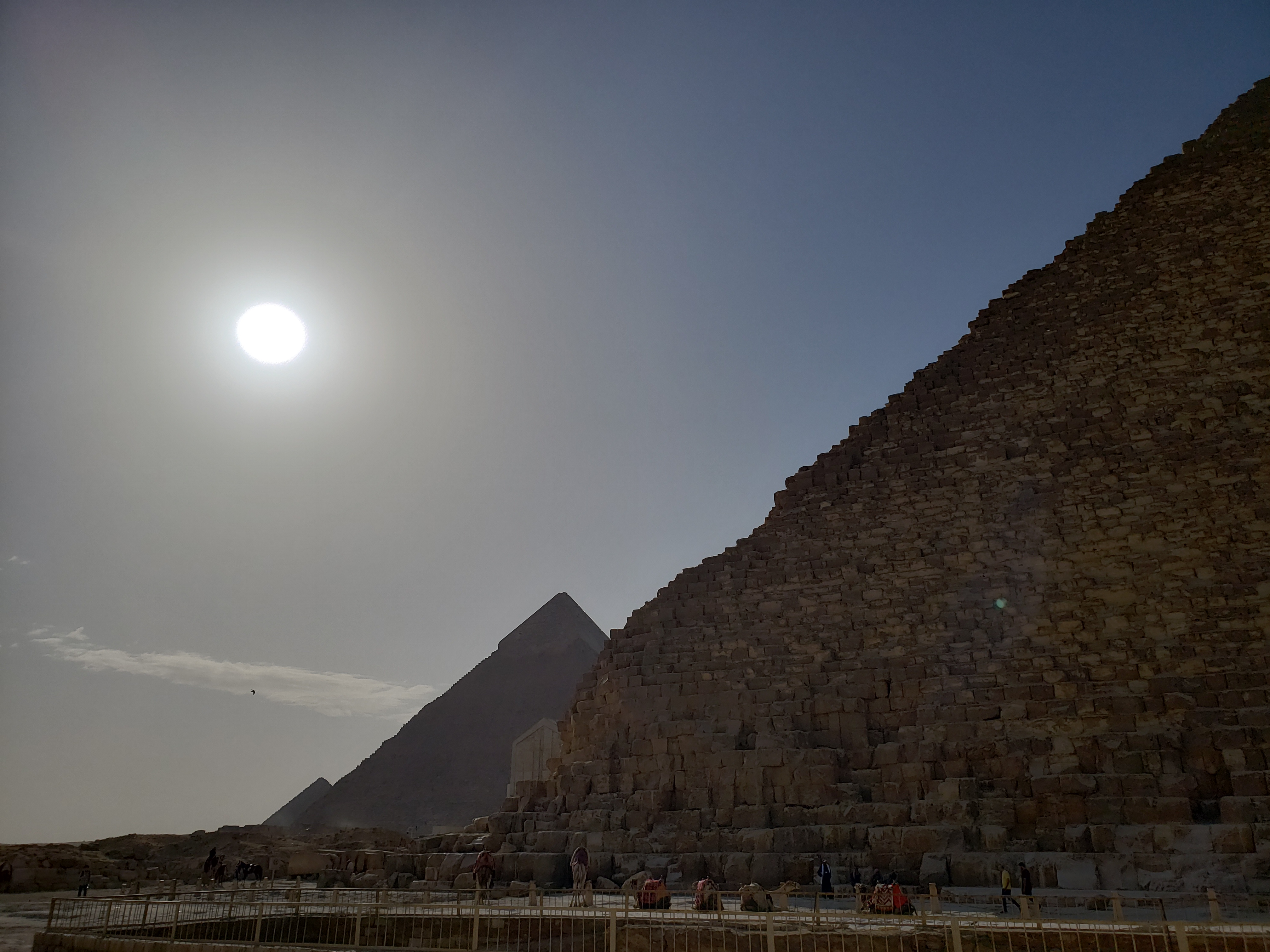
My senses were assaulted by the noise and smells and invigorated by the tastes and sights. I was disheartened by the poverty and enchanted by the Egyptians and their land.

This was Cairo after all.
